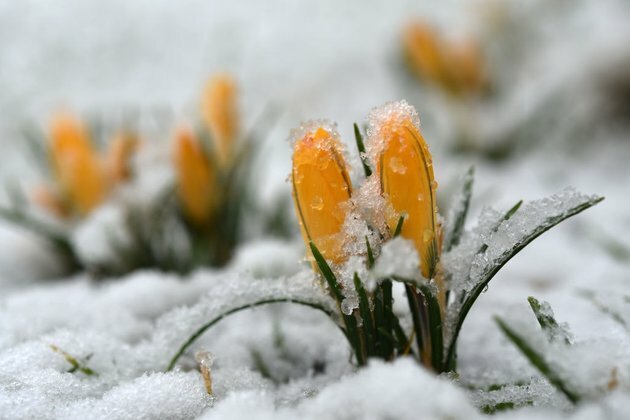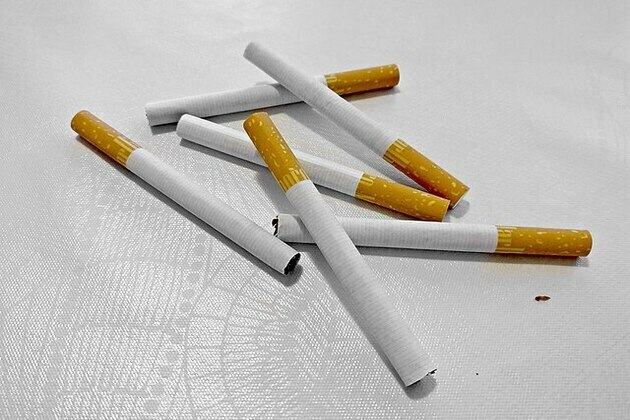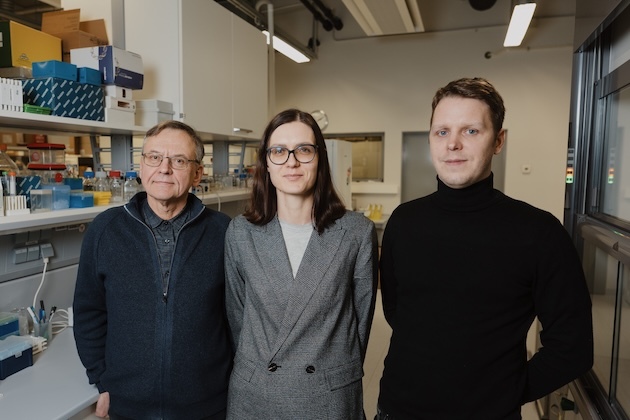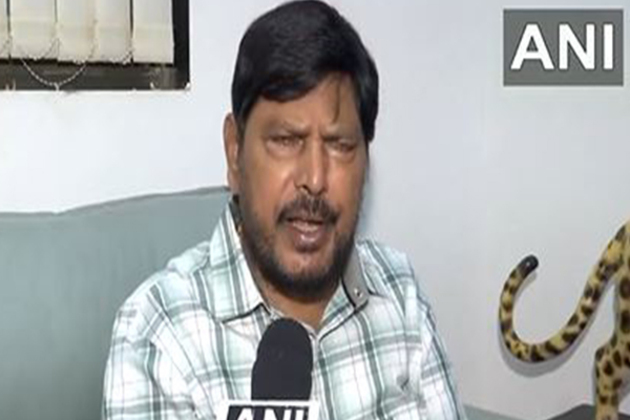Tackling 2022 with hope: 5 essential reads
The Conversation
13 Jan 2022, 19:09 GMT+10

Six months ago, it was easy for many Americans to think COVID-19 was on the defensive. Vaccinations were ticking up as case numbers ticked down. Summer sunshine made hanging out outside actually enjoyable, after a cooped-up winter of socializing with just our pods. Maybe, just maybe, Zoom fatigue would soon be a thing of the past.
Today, that optimism seems miles away. Hospitalizations are hitting new highs. Concerns about school safety amid climbing case counts have working parents and teachers on edge.
If you're not exactly feeling hopeful about the year ahead, you're not alone. Here are five of our favorite stories spotlighting resilience, healing, and yes, hope, to help you face 2022.
1. 'Work with hope'
Face it, poet and classics scholar Rachel Hadas writes: "We're in a prolonged period of maddeningly, scarily bad news."
But if you think that makes our society unique, think again. For as long as humans have been writing, they've been facing crises, learning to adapt - more than we give our species credit for - and keeping hope afloat. And readers today can draw strength from yesterday's literature.
Whether it's Homer's Greek epic "The Iliad" or American poet Emily Dickinson, writing about resilience often shares key themes, Hadas says: learning to balance the present and the future, the big-picture horizon and the joy of small things along the way. Quoting the modern Greek poet George Seferis, she writes of the need to "put to sea again with our broken oars."
Read more: 'Work with hope' - a poet and classics scholar on facing the flood of bad news
2. Before healing, remembering
The pandemic has robbed people not only of joy, but also of ways to process grief. As many people grasp "every opportunity to reconnect" and find new normals, others are still mourning lost loved ones, especially if COVID-19 restrictions prevented the kinds of healing and commemoration families once took for granted.
Eventually, as the pandemic ebbs, both groups can find happiness, but in different ways, writes David Sloane, who studies commemoration and mourning practices.
With normal healing interrupted, "everyday memorials" from flags and photographs to tattoos can help people "transition from the depths of the pandemic to the reopened society by offering ways for them to mourn and remember."
As we recover, joy and grief are often mixed together, he says, but don't let "survivor's guilt" keep you from finding comfort.
Read more: Joy and grief will coexist as Americans return to pre-pandemic life - 'everyday memorials' will help
3. Lean in to rituals
Across cultures, rituals can mark life milestones, strengthen social ties and even promote hygiene - such as Wudu, ritual cleansing before prayers in Islam. Yet the pandemic has interrupted everyday rites like handshakes and hugs, not to mention once-in-a-lifetime events like weddings or bar mitzvahs.
But that presents an opportunity to adapt, writes psychologist Cristine Legare. People often rely on rituals to manage stress and exert control, which helps them deal with uncertainty - part of what's so overwhelming about the pandemic.
"There are good reasons people spend time, money and energy engaging in rituals in the face of COVID-19 restrictions," she writes. "They are essential to meeting our physical, social and psychological needs in the face of adversity."
Read more: Why rituals are important survival tools during the COVID-19 pandemic
4. Hope vs. optimism
Hope isn't expecting good things, psychologist Jacqueline Mattis clarifies: It's believing they're possible, and then creating paths to achieve them. In other words, having a plan.
She offers five strategies to actively cultivate hope: having goals, harnessing uncertainty, managing attention, seeking community and looking at evidence. Challenges like a global pandemic call for adapting, not giving up, and "uncertainty is not reason for paralysis - it is a reason to hope," Mattis writes.
"Hopeful people do not wish - they imagine and act," she writes, emphasizing the importance of acting in community. Research on anti-poverty activists, for example, underscores that their relationships ignited their hope and conviction, giving them "a sense of accountability, to recognize that their work mattered and that they were part of something bigger than themselves."
Read more: 5 strategies for cultivating hope this year
5. Get in the flow
For people still crafting their 2022 resolutions, cognitive scientist Richard Huskey has a suggestion: Add some flow.
It's on his own list, too. "Flow," a term coined in the 1970s by psychologist Mihaly Csikszentmihalyi, is that feeling of complete absorption, or intense concentration, when someone's thoughts "are focused on an experience rather than on themselves," Huskey explains.
Intrinsically rewarding experiences, like those that put us "in the zone," support mental health, well-being and resilience. In fact, a study from China shows that people with more "flow" in their lives "had better well-being during the COVID-19 quarantine."
Read more: Why does experiencing 'flow' feel so good? A communication scientist explains
Editor's note: This story is a roundup of articles from The Conversation's archives.
Authors: Molly Jackson - Religion and Ethics Editor | Cristine H Legare - Professor of Psychology, The University of Texas at Austin College of Liberal Arts | David Sloane - Professor of Policy, Planning, and Development, University of Southern California | Jacqueline S. Mattis - Dean of Faculty, Rutgers University - Newark | Rachel Hadas - Professor of English, Rutgers University - Newark | Richard Huskey - Assistant Professor of Communication and Cognitive Science, University of California, Davis 
 Share
Share
 Tweet
Tweet
 Share
Share
 Flip
Flip
 Email
Email
Watch latest videos
Subscribe and Follow
Get a daily dose of Mexico Star news through our daily email, its complimentary and keeps you fully up to date with world and business news as well.
News RELEASES
Publish news of your business, community or sports group, personnel appointments, major event and more by submitting a news release to Mexico Star.
More InformationLifestyle
SectionNew French law targets smoking near schools, public spaces
PARIS, France: France is taking stronger steps to reduce smoking. A new health rule announced on Saturday will soon ban smoking in...
Methionine Restriction Could Extend Lifespan, Boost Health
VILNIUS, Lithuania – A growing body of research suggests that selectively restricting a single nutrient in our diet could have profound...
Himachal CM orders rescue in flood-hit Mandi on war-footing
Mandi (Himachal Pradesh), July 5 (ANI): Himachal Pradesh Chief Minister Sukhvinder Singh Sukhu has directed the Mandi district administration...
"Bullying can be answered with bullying...": Union Minister Ramdas Athawale on Raj Thackeray's remark
Mumbai (Maharashtra) [India], July 5 (ANI): Union Minister Ramdas Athawale on Saturday said that Maharashtra Navnirman Sena chief Raj...
Delhi: Former AAP MLA Naresh Balyan seeks permission to communicate with family from jail
New Delhi [India], July 5 (ANI): Former Aam Aadmi Party MLA Naresh Balyan, who is an accused in MCOCA, has sought permission to have...
Houston Texans donate $500K to help flood victims
(Photo credit: Paul Witwer/Standard-Times / USA TODAY NETWORK via Imagn Images) The Houston Texans announced a $500,000 commitment...
International
SectionTragedy in Spain: Diogo Jota and his brother die in car accident
MADRID, Spain: Liverpool footballer Diogo Jota and his younger brother, André Silva, have died in a car accident in Spain. Spanish...
Early heatwave grips Europe, leaving 8 dead and nations on alert
LONDON, U.K.: An unrelenting heatwave sweeping across Europe has pushed early summer temperatures to historic highs, triggering deadly...
U.S. military, China, Russia in Space race
President Donald Trump's plans to build a space-based Golden Dome missile defense shield have drawn immediate criticism from China,...
Trump wins $16 million settlement from Paramount over CBS Harris edit
NEW YORK CITY, New York: Paramount has agreed to pay US$16 million to settle a lawsuit brought by U.S. President Donald Trump over...
British PM faces major party revolt over welfare reforms
LONDON, U.K.: British Prime Minister Keir Starmer won a vote in Parliament this week to move ahead with changes to the country's welfare...
White House meeting between Trump, Netanyahu on July 7
WASHINGTON, D.C.: President Donald Trump will meet Israeli Prime Minister Benjamin Netanyahu at the White House on Monday. President...













